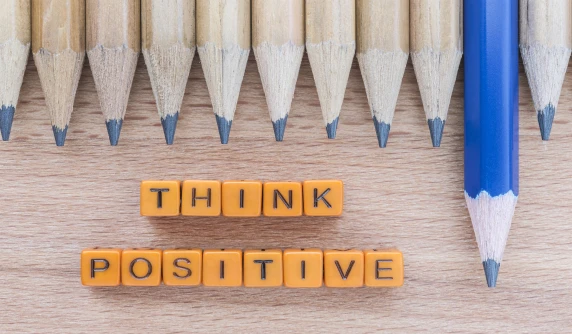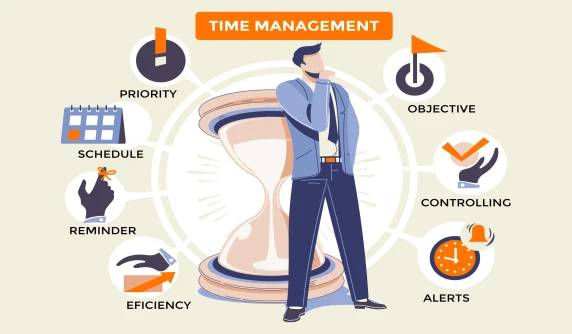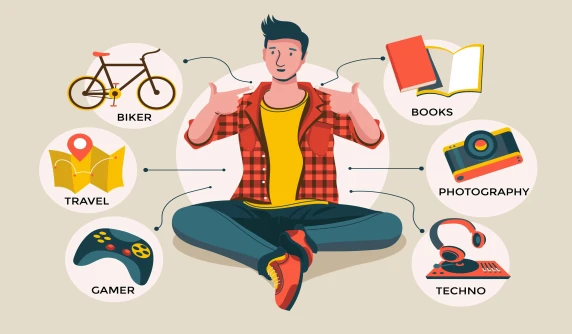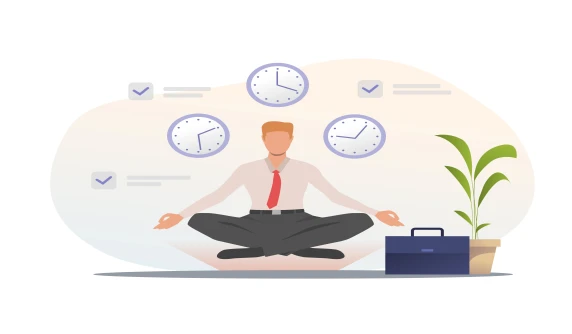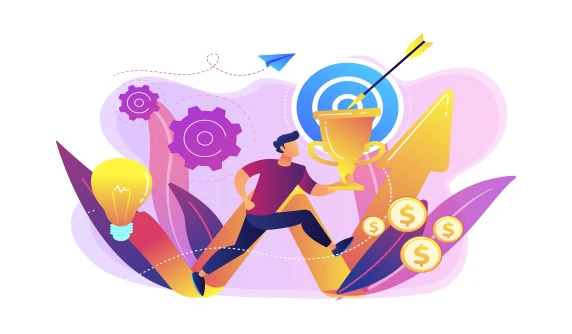
You must apply life skills if you want to be prosperous, content, joyful, and fulfilled. They help you reach your full potential and optimize your capacity to accomplish your objectives. The broad topic of life skills includes several vitally important skills.
This can involve writing, critical thinking, communication, and other vital abilities. You can use these life skills to improve both your short-term and long-term fulfillment.
They are advantageous for both your personal and professional lives. However, even though they appear important, many people find it difficult to acquire life skills. Determining which talents are actually essential to your development might be challenging.
But you can know what you really desire if you put in the necessary time, effort, and attention to your inner feelings. This post will outline the process of developing life skills and provide examples of those that are vitally necessary.
Life Skills: What Are They? Meaning & Definition
A rather broad set of qualities and aptitudes is called "life skills." They vary according to your goals in life—career, relationships, geography, culture, age, beliefs, and so forth.
In general, a life talent is any ability that makes your life better. The World Health Organization states that there are six different categories of life skills in addition to this wide concept.
Among them are:
1. Communication and interpersonal skills
Guarantees that people are able to collaborate, write, persuade, and communicate with others in an effective manner.
2. Decision-making and problem-solving skills
Aids in understanding issues, collaborating with others to achieve a shared objective, and appreciating the benefits and drawbacks of choices.
3. Creative and critical thinking
Entails thinking creatively, coming up with novel ideas, offering original viewpoints, developing fresh concepts, producing inventive goods, and precisely evaluating data and information.
4. Emotional intelligence (empathy and self-awareness)
Being emotionally intelligent largely involves recognizing your own challenges and relating to others on an emotional level.
5. Self-control or assertiveness
Being assertive means that you can defend yourself, confront injustice, and remain composed under pressure.
6. Resilience
Resilience requires tenacity, acceptance of challenges, trying again after failing, and a sincere desire to learn from failures.
Life Skills Examples
Every person has a different level of value for each life skill. While some people value assertiveness over empathy, others would rather not. However, there are some life skills that are generally valued.
The list of life talents that could help your job or personal life is below:
-
Writing skills
-
Research skills
-
Listening skills/active listening
-
Negotiation skills
-
Leadership skills
-
Creative thinking or critical thinking
-
Numeracy skills
-
Time management/organizing skills
-
Cooking skills
-
Self-awareness
-
Employability skills
-
Humor skills
-
Teaching skills
-
Study skills
-
Independence
-
Resilience
-
Self-discipline/self-control/assertiveness
-
Self-care (particularly with regard to diet and cleanliness)
-
True learning/passion for knowledge
-
Adaptability and accepting change
Basic Life Skills
Certain abilities will be more significant to you than others. Which life skills are most important depends on your objectives, profession, interests, and other factors. Some talents, however, are beneficial in most relationships, almost any employment, and the achievement of practically any objective.
These skills include:
Reading Skills
The ability to read texts, comprehend them, look for hidden or deeper meaning, and apply this understanding to the outside world are all considered reading skills. Reading expands one's vocabulary and aids in knowledge acquisition.
They are also exposed to fresh viewpoints and innovative approaches to problem-solving. Reading and writing skills are necessary for responding to emails, creating cover letters, creating presentations, applying for jobs, and other tasks.
Writing Skills
Writing abilities facilitate the conversion of ideas into writing. Writing facilitates departmental connections, expands a business's clientele, and improves communication.
It could be difficult to be inspirational or convincing via written or email correspondence, but excellent writers can use their abilities to do just that.
Communication Skills
People with good communication skills can assign work to others, explain their worries and difficulties, and express their views clearly. Communication abilities encompass more than just reading and writing; oral communication is one type.
A clear message is sent to your audience when you communicate effectively. A excellent communicator must adapt this message to each new group of people they come into contact with.
In the workplace, communication is critical for all positions. It is also essential for keeping a relationship strong.
Emotional Intelligence Skills
The capacity to comprehend both your own and other people's thoughts and feelings is known as emotional intelligence.
Being emotionally intelligent also involves controlling your emotions and having empathy. People who are sympathetic are generally viewed favorably. People who are sympathetic are more likely to be open with others, especially one's spouse.
How to Develop Life Skills?
Specifying and goal-setting are the first steps in developing life skills. These objectives must to be time-bound, realistic, achievable, quantifiable, and SMART.
Consider the precise skill you hope to acquire, the means by which you will know you've done so, and the desired timeframe for obtaining it. Don't forget to think about your motivations for wanting this talent.
Having a specific purpose guarantees that you will have something to push you forward when you want to give up. Next, begin by getting rid of anything from your home or office that doesn't align with your objectives for developing life skills.
This is sometimes referred to as environmental adaptation. For instance, move the TV to a different room or avoid watching TV altogether if you want to be productive. You can locate a mentor who assists you in honing the skill you wish to concentrate on.
Teens who want to excel academically should look for study programs or get help from their teachers. See your supervisor after work if you want to concentrate on honing your leadership abilities.
Alternatively, think about working with a financial life coach to gain financial literacy. Assess the effectiveness of your life skill development plan periodically. Adjust as needed.
Every now and then, observe whether your partner or coworkers notice the new ability you've learned or are attempting to learn. They might have some insightful opinions.
How to Improve Life Skills?
Determine your strengths and areas for improvement when it comes to applying a life skill you currently possess. Keep applying the ability in constructive ways. Try applying it in novel situations to build your strength.
Try not to give up on your relationship if you already apply perseverance in the workplace. Communicate with your spouse in the same manner that you do with your coworkers.
Consider why you find it difficult to apply a life skill when you see a flaw in your application. Maybe a change in the surroundings is to blame. If you are not using this life skill well, try to be more receptive to comments from coworkers, employers, or spouses.
If you find it difficult to maintain organization at work, find out from a colleague how they manage it and use a similar approach.
Life Skills for Adults (7 Examples)
To successfully manage their personal and professional lives, the majority of adults require a few basic life skills. While there isn't a set list of abilities that every adult needs to possess, most individuals appear to think that a few key skills are vital.
Among these abilities are:
-
Parenting skills
-
Relationship skills
-
Financial literacy and managing finances
-
Self Care
-
Resilience
-
Critical thinking
-
Technological skills
Parenting skills
Anyone with children has to have these skills. Being a parent requires a lot of abilities, like listening, behavior control, self-care, caring, stress management, independence, and so forth.
But there are a lot of advantages to learning these abilities. Your children will feel more comfortable talking to you. They'll start acting better and be headed toward a happy and healthy future. Therefore, while learning these talents is undoubtedly difficult, the effort pays off in the end.
Relationship skills
Not just those in romantic relationships, but almost all adults, require relationship skills. Additionally, these abilities enable you to interact with friends, coworkers, networking partners, and other people in an efficient manner.
These abilities support the development of romantic relationships by ensuring that both partners feel comfortable, appreciated, and understood.
Relationship skills encompass a broad spectrum of abilities: empathy, active listening, verbal and nonverbal communication skills, emotional intelligence, interpersonal skills, and team-building abilities are just a few examples.
Financial literacy and managing finances
Having money is a big aspect of growing up. You have to know how to manage your money well in order to make, save, spend, and even give it away. Determining which things are worth spending money on and which are not is a part of having sound financial judgment.
This is frequently ascertained by observing the degree to which an item enhances their life. Another method to have more financial control is to make and follow budgets. Being financially responsible is necessary when saving for a child's college education, retirement, or a future business endeavor.
Self Care
Sometimes life can be very stressful. Being able to handle stress is essential to becoming a successful and productive adult. Many people use unhealthy coping mechanisms to deal with stress.
They might stop exercising, start smoking, eat poorly, or neglect personal hygiene. It's critical to learn how to steer clear of these bad habits and concentrate on good ones instead.
Bathing, working out, having a shower, reading, getting acupuncture, listening to music, and maintaining a healthy diet are a few examples of self-care practices. You can be more productive, healthy, and optimistic if you take good care of your body and mind.
Resilience
There are some challenges that you will face in your lifetime. You can achieve the objectives you set for yourself if you know how to overcome them and grow from your mistakes.
You have to have the ability to pick yourself up after failing and try again. If you don't do this, you'll be constrained by your comfort zone and find it tough to succeed.
Not only may you learn from your own mistakes, but also from others'. Then modify your tactics and persist in your pursuit of success. Resilience is a key success factor for many of the well-known performers, musicians, and businesspeople in the globe. Whatever your objectives, the same ought to apply to you.
Critical thinking
How can someone tell what is true when they are listening to the news? The solution lies in critical thinking. You have to have independent thought in order to receive accurate information. You no longer have a parent guiding you in morality as an adult.
This is something you have to figure out for yourself. Any problem solving process involves critical thinking. If you are incapable of independent thought, you will never be a totally autonomous person.
Try to politely challenge what someone else tells you if you depend on them for your thoughts. When creating new products or attempting novel approaches to challenges, critical thinking is also helpful.
Technological skills
You need to comprehend technology if you're going to manage the adult digital world of today. This does not imply that you have to be a PhD-holding Python programmer. Instead, you need to understand how to use technology to your advantage.
Make sure you have internet communication capabilities. To add some enjoyment to some of your monotonous duties, try employing software. Alternatively, use the internet to increase your productivity at work.
Whatever the situation, technology is here to stay. Instead of using it as a distraction, learn how to use it to your benefit.
5 of the Most Important Life Skills for Students, with an explanation
The skill set required for success by students is different from that of adults. Every student is unique, and as such, their passions, objectives, and goals may alter the skills that are most important to them. Still, for almost every student to succeed in school and beyond, there are a few necessary talents.
Among them are:
Writing skills
Students undoubtedly need to be proficient writers, whether they are composing emails, essays, cover letters, presentations, job applications, or college applications.
Kids who write are equipped to make the most of every opportunity that comes their way. Children who don't have a well-written essay or strong reading scores are rarely admitted to colleges.
In addition, more institutions will admit an adolescent who writes with exceptional persuasiveness and strength. Thus, having strong writing abilities may be essential to their future.
Learning skills
For students, lifelong learning is very vital. Early in life, if they have a desire for studying, they are likely to carry that passion into adulthood. There is no end to the benefits that learning and information collecting provide on teenagers and early learners.
They increase their vocabulary, pick up new abilities, develop personally, sharpen their critical thinking, see the world from different angles, and much more. Rapid learning also contributes to pupils' flexibility and willingness to adjust.
Study skills
High school students will study for up to six hours per day. Students can set themselves up for success by learning how to make the most of this time and possibly lessen the pressure of studying.
On the other hand, study skills are a quite broad set of abilities. It calls for education, critical thinking, organization, time management, communication, and other abilities.
In addition to improving exam performance, students with strong study abilities can cut down on the amount of time they spend studying every day. This is how effective study techniques like "work smarter, not harder" are applied.
Decision making
Students are expected to make more decisions on their own as they get older, particularly as they get to high school or college age. Some proceed to make grave errors later on, like taking up smoking or fighting, but others make more considered, long-term decisions.
A student must be able to resist peer pressure, maintain attention, and prioritize learning over momentary pleasures in order to select the later option.
Having integrity
It's possible that young children lack the capacity for integrity. Their understanding of the distinctions between good and wrong is incomplete. But integrity becomes more and more crucial as the child grows older and enters school.
They will encounter the urge to engage in foolish behavior. They can avoid these if they have self-control. It's far better to swiftly own up to their mistakes and move on than to deceive people if they make a bad judgment.
In actuality, kids who lack integrity may find it difficult to get into college or may be forced to break up with longtime friends.
5 Crucial Life Skills Your Child Needs to Succeed in Life
It is your responsibility as a parent to prepare your child for success. You may accomplish this by teaching kids some essential life lessons. Life skills support your child in discovering their passion, achieving short- and long-term objectives, and maintaining their happiness and health.
To name a few of these skills:
-
Focus and self-control
-
Making connections
-
Tackling challenges
-
Communication
-
Empathy and perspective-taking
Focus and Self-Control
Children are typically gregarious. Sometimes this energy makes it difficult for kids to focus or to regulate their feelings or behavior. But when there is security and structure in a child's life, they really flourish.
Assist them in creating routines, schedules, and positive behaviors. The development of self-control can be facilitated by emotional learning, familial support, and a focus on maintaining composure under pressure. Try reading a book, making a puzzle, or playing board games with kids to help them concentrate better.
Making Connections
Although it may not appear advantageous, forming relatively random relationships has a lot more advantages than you might imagine. A youngster can learn more and gain deeper information if they are able to form more connections.
Early in life is when children begin to form bonds. They might begin by arranging toys or clothing into piles. They could also draw links between the attire that is appropriate for the weather and the weather itself.
Remind kids about their past experiences so they can form lasting bonds. Say something along the lines of, "Do you remember the dinosaur you played with? When you visit a museum, you may say, "This is how it looked in real life, thousands of years ago."
Tackling challenges
Regardless of age, resilience is a crucial quality in all people. Don't encourage children to remain in their comfort zones. Make sure they are at ease taking calculated chances and trying things they might not know will work.
Instruct them that making errors is normal and that what matters most is learning from them. They also feel secure knowing that you are available to assist them in the event that something goes wrong. Provide your children with modest, manageable tasks.
Consider teaching them the proper way to tie their shoes and letting them attempt it on their own. Show them again till they succeed if they don't succeed. Recall to honor labor in addition to accomplishment.
Communication
The best period to acquire sound social-emotional abilities is throughout childhood. Among these crucial abilities is communication—the capacity to convey information clearly and comprehend others.
A child's development of these talents may take longer or shorter depending on a number of circumstances. Assist kids in learning about social cues, tone, body language, and facial emotions.
Teach children to listen intently as well. Set aside time each day to talk one-on-one with your child, hear out their worries, and assist them in getting their point over.
Empathy and perspective-taking
The majority of kids don't automatically consider other people's perspectives when they are faced with challenges. With practice, this ability can be improved.
Placing a youngster in the shoes of a character in a book is one of the best methods to foster empathy in small children. Try asking the young reader why a character in the book could be depressed or how they would assist the character if they were real.
Ask the youngster if they have ever experienced anything similar as well as what got them through this difficult feeling.
FAQ for Life Skills
What are the 5 essential life skills?
For each person to reach their greatest potential, they require life skills.
If you find it difficult to narrow down your list of priorities, think of the following five as the most crucial competencies: leadership, problem-solving, active listening, empathy, collaboration, and so forth; interpersonal skills; organization; and time management.
What are the 3 categories of life skills?
Even though there are many different types of life skills, they usually fall into three main categories. These include the cognitive abilities—critical thinking, creativity, problem-solving, decisiveness, and adaptability—as well as the interpersonal and personal abilities—self-awareness, emotional control, discipline, empathy, communication skills, active listening, teamwork, and conflict resolution, among others.

